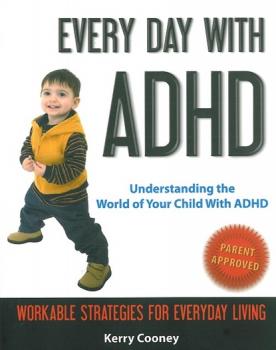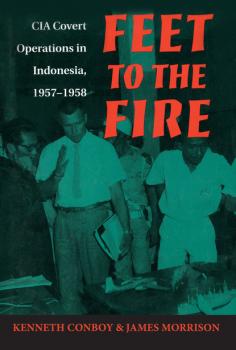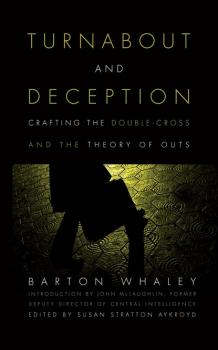Социальная психология
Различные книги в жанре Социальная психологияStrategies For Surviving Bullying at Work
No one goes to work to be humiliated, abused, ostracised, subjected to rumours, or assaulted. Yet this is the reality of a working day for many employees. Now you can do something about it. From the author of the highly successful introduction to workplace bullying “Bully Blocking at Work”, comes a practical guide to empower all employees to care for themselves and  colleagues when faced with bullying behaviours. Beginning with an overview of social and emotional resiliency at work, the reader is shown how six key strategies based on the development of social skills can equip them to fight even the most persistent of bullies.
The Charismatic Personality
The idea that a single person can change the course of nations, peoples, and movements through the force of their own personality is something many may find fascinating and more than a little scary. How does such a thing happen? While much has been written about the lives of charismatic characters, scientific investigation of the phenomena is rare. In his latest book psychologist Len Oakes draws on a range of disciplines including theology, history, sociology and psychoanalysis to explore a personality so different from the general population that it is used by groups to solve problems that reason and tradition have failed to answer. With case studies and reviews of individuals such as Winston Churchill, Sigmund Freud, Adolf Hitler, Mohandas Gandhi, Nelson Mandela, Germaine Greer, Girolamo Savonarola, Mao Tse-tung and Franklin Delano Roosevelt, Oakes argues that charismatic leadership is a creative, problem-solving strategy that is resorted to in extremis, and that the reason it so often disappoints is may be due to the magnitude of the problems it is called upon to address. However, when it is successful it is spectacularly so, and may give birth to a new civilisation or religion.
Bully Blocking at Work
Evelyn Field's masterful analysis of the ways we can help employees cope with and overcome workplace bullying and harassment is a must read for all concerned about how to right this wrong. — Dr Philip Zimbardo, Stanford University and author of The Lucifer Effect, Understanding How Good People Turn Evil Kudos to bully expert Evelyn Field for this helpful book.  Features many "I can use that today" techniques Read it and reap! — Sam Horn,  author of Take the Bully by the Horns and Tongue Fu!® USANo one goes to work to be humiliated, abused, ostracised, subjected to rumours, or assaulted. Yet this is the reality of a working day for more than one in six workers. Bullying causes billions of dollars in lost productivity, expensive mistakes, employee replacement costs, and health and welfare rehabilitation expenses. Most workplaces currently have few resources and systems to deal with the problem, leaving the victims to sink or swim, and the bullies to remain professionally incompetent. Few understand that bullying is not tough management or an aggressive personality trait to be suffered. Severe and unremitting bullying catapults the victim into such a damaging emotional state that it can lead to the breakdown of their very survival mechanisms. Bully Blocking at Work  reveals for the first time the true evil nature of workplace bullying, helping the reader to understand its toxic, destructive impact on all employees — whether they are targets, bullies or onlookers — and provides advice for coping and confronting bullying, from both a personal and organisational perspective. The author has worked as a psychologist for over thirty years and has spent many hours listening to clients, conducting interviews, reading, speaking and writing about workplace bullying. Sprinkled liberally throughout the pages are quotes from the many sufferers of bullying that the author has personally worked with over many years.
Citizen Ninja
CITIZEN NINJA stand up to power in pursuit of freedom, truth, and justice. Citizen Ninjas speak up; they don’t wait for others to speak for them. Citizen Ninjas are prepared, discerning, self-reliant and assertive. They step out of their comfort zone to nimbly challenge powerful entities that disenfranchise the public and reduce citizen power.Citizen Ninjas respond to community issues and actively engage City Hall to make a difference. They pay attention to government business and actively direct elected public servants to create policies that benefit the interests of the whole community. They are the activists who demand government transparency and are the watchdogs who speak out when there is corruption or ethical wrongdoing.Citizen Ninjas are passionate. They know that their civic participation places them in a better position of influence when new regulations, mandates, and ordinances are enacted.Citizen Ninjas are activists who strive to preserve the power of self-government—a representative republic that is of the people, by the people, and for the people. They actively engage in the public square rather than passively allowing government agencies to make decisions on their behalf. While being passionate, Citizen Ninjas avoid throwing vitriolic word bombs like “fascist pig” or “baby killer” and instead build trust, find common ground, and work toward constructive solutions.Showing up at a city council meeting, a public workshop, a rally, or a town hall meeting to express dissatisfaction is the right thing to do, but being effective takes more than good intentions. Citizen Ninjas are smarter, more cunning and strategically savvy in approaching highly organized government agencies, powerful corporations and established non-governmental organizations they partner with.In CITIZEN NINJA author Baker presents a peaceful approach to political activism espousing an exchange of ideas, robust debate, respect, and tolerance as opposed to tactics which promote violence, hatred, prejudice, and bullying. Every two years, many Americans get busy and campaign for the candidate of their choice. Activity ranges from simply speaking to friends and family about their choices, to donating money, walking precincts, and voting. Then after the election the majority go back to working, playing, and raising families.CITIZEN NINJA explores the importance of continuing participation in government after elections. Baker stresses that We the People keep informed about what is going on in local government agencies—city council, school board, county board of supervisors, and metropolitan planning organizations, to seek opportunities for civic participation.In CITIZEN NINJA shows that we are the boss, politicians are the employees who require supervision and guidance and are more effective when having our support and attention. When we are part of the process, we are part of the solution.In CITIZEN NINJA readers learn how to speak up in public without being scared or intimidated. CITIZEN NINJA shows that to be effective in civil discourse, we must transform the way we think about activism. Standing up to power is not about acting out in anger, condoning violence, or relying on mean-spirited tactics. Rather it is about honesty, building trust, treating others with respect, working towards constructive solutions, and effective communication.With practice, CITIZEN NINJA readers will master skills that enable them to respond intelligently rather than to reacting to stimulation or provocation. These skills include how to seek opportunities for engagement, assess a setting, ask a question, discern a person’s knowledge on an issue, neutralize a bully, and more!
Question Authority; Think for Yourself
We have freedom of speech but we’re afraid to speak. Our lives have become subjected to PC tyranny—a constant fear of “offending” someone. We think that we are independent and that it is the other guy who is influenced, brainwashed, duped, persuaded. We feel like we think for ourselves. How can we “feel” otherwise? There’s no way to know because countless influences and interactions have molded us. We’re members of various groups—circles of friends, family, professional groups, hobby group, and workplace groups. Groups have a way of developing a view that it imposes with a kind of group-think. We want to belong, to be liked and included so go along and get along. We don’t make waves by questioning. If we have a different view, we keep it to ourselves. Why rock the boat?Thinking for yourself is not so easy. When encountering an argument to a long held opinion or a wild idea, we use critical thinking to evaluate it, as we were taught to do in school. The problem is that critical thinking is critical. It focuses our thinking on the negative—what doesn’t work, what’s wrong with the idea—and encourages my-side thinking where we evaluate evidence in a way that favors our beliefs and entraps us into closed-mindedness. Thinking for yourself requires open-mindedness. Open-mindedness is being receptive and, when the issue is important, calls for actively searching for evidence against your beliefs.Thinking is not driven by answers but by questions. Every intellectual field is born out of a cluster of questions to which answers are needed. Had no questions been asked by those who laid the foundation for a field — for example, Physics or Biology — the field would never have been developed.We define tasks, express problems and delineate issues with questions. Answers signal an end point and stop thought, except when an answer generates a further question.Timothy Leary said, ”to think for yourself you must question authority”. To think, you must question. To think through or rethink anything, one must ask questions that stimulate thought. The quality of your questions determines the quality of your thinking.Thinking begins within some content when questions are generated. No questions equals no understanding. To engage in thinking through your content you must stimulate your thinking with questions that lead to further questions.Our own opinions is one authority we should frequently question. Times change. We change. Perspectives and values change. Book explores how opinions and values we held in the past need periodic evaluation and challenge. Independent thinkers evolve and need to shed the shackles of old views and opinions.Ridicule is the strongest weapon for pressing us to conform. It is a kind of bait that if you go for it will entrap you in an argument you can’t win and leave you looking ridiculous and deflated. Question Authority; Think for Yourself offers techniques, with examples, of how to deflect attacks, side-tracks, and put-downs.If you’ve bitten your tongue and later wished you’d spoken up and not been cowed into silence by a mocking co-worker when you revealed a “politically incorrect” viewpoint, you’ll find much of interest in Question Authority; Think for Yourself .
Patriots Handbook
As disdain grows for the workings of Washington, patriots across the country have gathered in «tea parties,» harkening back to the nation’s roots in 1773 when «No taxation without representation» was the motto. Americans again feel overly taxed by rulers who don’t listen, and the tea parties have grown into a movement comprised of deeply concerned Americans who have never previously participated in any demonstration. With this comes a renewed interest in our unique history as a nation, and Patriots Handbook offers just that. For those interested in actually reading the founding documents and learning about what the Founding Fathers had to say, Patriots Handbook offers our nation’s founding documents, along with inspiring quotes and excerpts about the glorious history of our great nation.
Every Day With ADHD
After years of working with parents and their ADHD children, it became apparent to author Kerry Cooney that there were unmet needs in families where a child had been diagnosed with ADHD. A lack of knowledge and specific tools for ADHD was also causing concern for professionals who desperately wanted information on how best to assist these children and families. Very few people truly understood ADHD and its impact on the child and the family, many having the view that a child with ADHD is simply naughty, far too demanding and uncontrollable.<br />It is the author's belief that the controversial aspects of the existence of ADHD and the use of medication kept the focus away from the child and the family's real issues often preventing any hope of clarity and moving towards a positive outcome. Along with the need for understanding was a disturbing lack of support for the child and family dealing with ADHD.<br />This book has been written for parents, carers and teachers of children with ADHD, to help understand the world of their child along with providing workable strategies for every day living.
We Want to Negotiate
Starting in late 2012, Westerners working in Syria – journalists and aid workers – began disappearing without a trace. A year later the world learned they had been taken hostage by the Islamic State. Throughout 2014, all the Europeans came home, first the Spanish, then the French, then an Italian, a German, and a Dane. In August 2014, the Islamic State began executing the Americans – including journalists James Foley and Steven Sotloff, followed by the British hostages.<BR><BR>Joel Simon, who in nearly two decades at the Committee to Protect Journalists has worked on dozens of hostages cases, delves into the heated hostage policy debate. The Europeans paid millions of dollars to a terrorist group to free their hostages. The US and the UK refused to do so, arguing that any ransom would be used to fuel terrorism and would make the crime more attractive, increasing the risk to their citizens. <i>We Want to Negotiate</i> is an exploration of the ethical, legal, and strategic considerations of a bedeviling question: Should governments pay ransom to terrorists?
Feet to the Fire
Today the vast archipelago of Southeast Asia islands known as Indonesia is in the headlines because of political instability, religious tension, and violence in the streets. Forty years ago similar conditions led the Central Intelligence Agency to mount a top-secret covert action campaign designed to hold that nation's left-leaning President Sukarno's feet to the fire and prevent a strategic crossroad from falling into the communist camp. The Agency supported rebels with weapons, planes, and a memorable cast of bigger-than-life American agents. In a fast-paced, engrossing narrative evoking the novels of John LeCarré and Graham Greene, the authors provide the first unclassified, detailed case study of an operation that has escaped public scrutiny for decades. Their work adds significantly to our understanding of the CIA and American involvement in Asia. Drawing on declassified documents and an extraordinary number of interviews with CIA and Indonesian participants, Kenneth Conboy and James Morrison reconstruct the delicate, dangerous game played by American intelligence agents across the Indonesian archipelago. This is a story of ideologues and soldiers of fortune–historic CIA legends like Allen Dulles and Franklin Wisner, and notorious special operators like Tony «Poe» Poshepny, whose reputation reached mythic proportions later in Laos, and Allen Pope, an indefatigable B-26 pilot who was captured and sentenced to die. But it also includes the transfixing exploits of Montana smokejumpers, Polish aircrews, Muslim anti-communist guerrillas, U.S. Navy submarine crews, and Filipino mercenary pilots flying P-51 Mustangs. With the problems in today's Indonesia far from solved and the complex U.S.-Indonesian relationship coming under close scrutiny, this fascinating account of an American covert operation gone bad will play a significant role in shedding new light on the CIA's efforts in Southeast Asia.
Turnabout and Deception
This title combines two of spymaster Barton Whaley's most potent analyses of the craft: Turnabout: Crafting the Double-Cross and When Deception Fails: The Theory of Outs. Each examination dives into extensive case studies to establish not only bedrock understandings of essential espionage principals, but also creates guidance for their practical application on both individual and governmental scales.Deception is a basic tactic used by allies and enemies alike, but when both protagonist and antagonist ply the same trade, it is the master of the double-cross who comes out the victor. Turnabout examines exactly how to turn the tables on an opponent and use their own deception against them. Through 38 case studies this monograph dissects the double-cross to reveal the psychological battle of wits at its core.No matter how well crafted, however, there is always a chance that a deception will fail. But failure is not the end of a deception, and even failed deception operations can yield results. When Deception Fails pores over 60 case studies to determine why a deception will fail, steps to prevent a failed operation, and how to turn that failure into a success. Through his analysis of the Theory of Outs, Whaley identifies the cunning required to recapture the initiative rather than allowing an error to turn an operation into a total loss.









